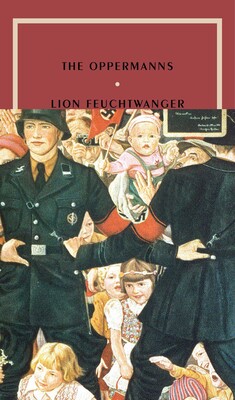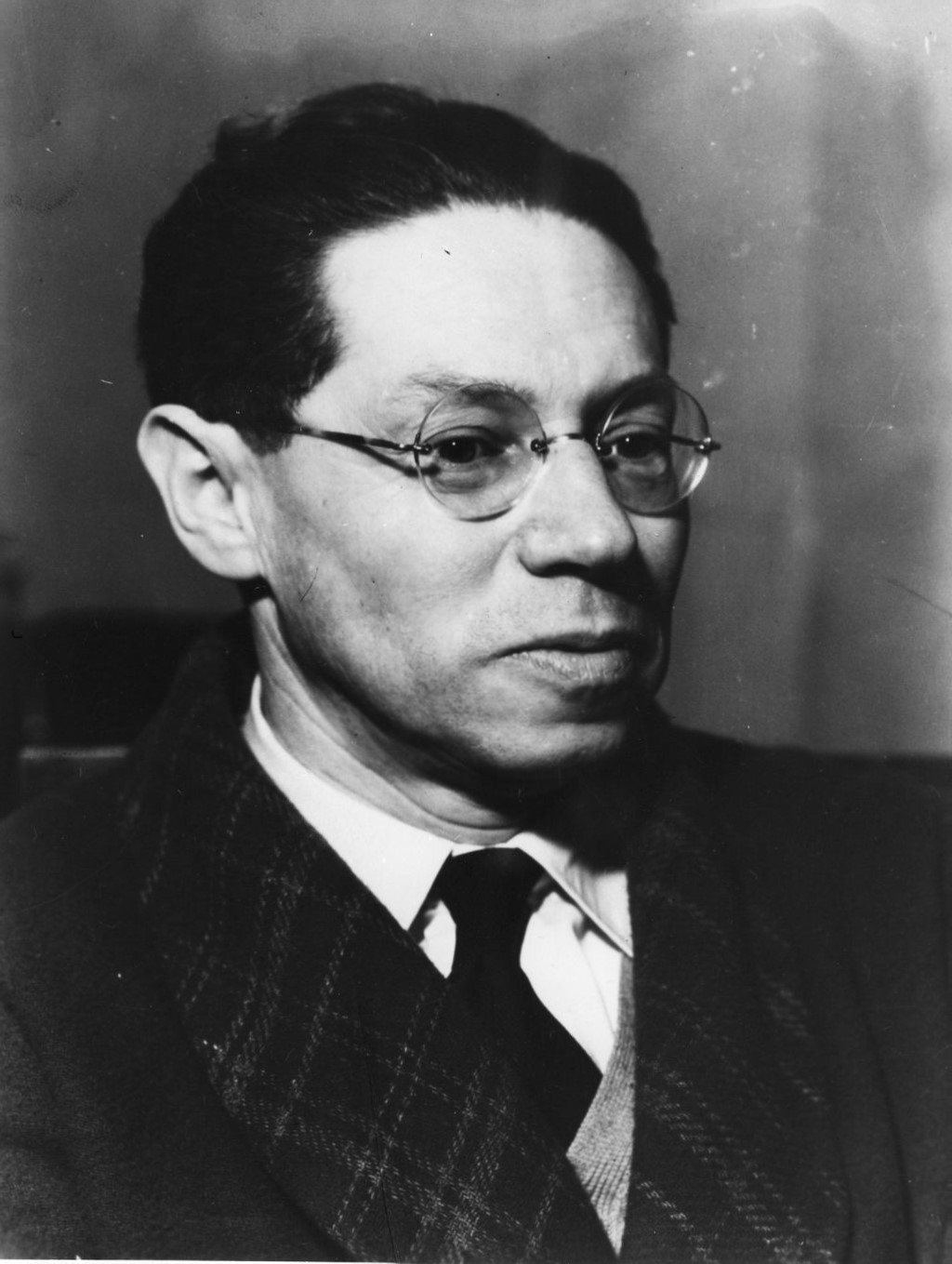In Brief. This post is about a remarkable book which I have only recently discovered.

A few weeks ago, a friend told me about The Oppermanns, a book that I had not been aware of. I was surprised when I heard about it, for I’ve been a long-time reader of European history and, in particular, the story of the Second World War. And for some reason, I find myself drawn to personal histories – both true-to-life and fiction – of Europeans who suffered through the rise of National Socialism. Sad to say, the stories are often so gripping and disturbing I can’t read but so many, and I’m forced put the subject aside for a while.
That didn’t happen with The Oppermanns (German: Die Geschwister Oppermann). It is a 1933 novel by Lion Feuchtwanger, translated by James Cleugh. A new edition, with a revised translation and a new introduction by Joshua Cohen, was just published by McNally Editions last October. And while it is fiction, it is very real, in many respects, about what happened to many people, especially to Jewish families which had been – they thought – assimilated into German and Austrian society. And, I suppose, to the story somewhat related to that currently being told in “Leopoldstadt,” Tom Stoppard’s most autobiographical play (now on Broadway).
I won’t attempt to summarize it here, since The Oppermanns is best described in notes from Simon & Schuster, which distributes the book for the publisher:
Written in real time, as the Nazis consolidated their power over the winter of 1933, The Oppermanns captures the fall of Weimar Germany through the eyes of one bourgeois Jewish family, shocked and paralyzed by an ideology they cannot comprehend.
In the foment of Weimar-era Berlin, the Oppermann brothers represent tradition and stability. One brother oversees the furniture chain founded by their grandfather, one is an eminent surgeon, one a respected critic. They are rich, cultured, liberal, and public spirited, proud inheritors of the German enlightenment. They don’t see Hitler as a threat. Then, to their horror, the Nazis come to power, and the Oppermanns and their children are faced with the terrible decision of whether to adapt – if they can – flee, or try to fight.
Written in 1933, nearly in real time, The Oppermanns captures the day-to-day vertigo of watching a liberal democracy fall apart. As Joshua Cohen writes in his introduction to this new edition, it is “one of the last masterpieces of German-Jewish culture.” Prescient and chilling, it has lost none of its power today.
The Oppermanns: A Novel for Our Time?
Two themes come to mind as we read and think about The Oppermanns. The first has to do with a phrase that sets a running idea throughout the book, a saying from the Talmud: “It is not your duty to finish the work, but neither are you free to neglect it.”

With a variety of applications throughout the book – particularly with respect to the primary character, the philosopher and writer Gustav Oppermann (and one of the four siblings continuing their generation’s affiliation with the family business) – the phrase becomes a sort of motif, something that is continually present. And we come to realize that the phrase, with societal and religious assimilation and the adoption of secular and non-religious connections, many people throughout their lives find themselves destined to make decisions about whether they will continue their “work” (however defined) or move to involve themselves with something different. Or simply to forget their “work.”
The second of these running, all-present ideas has to do with the question mark in that sub-title above. Are there threats and horror situations described in The Oppermanns that might be realized in our own modern life, especially in America? Can we – when we’re aware of some things happening in our society today – make an analogy with what happened when the Nazis took over?
Those are not easy-to-answer questions, but we have to think about them. And we have to be careful, for there are many ways to answer these questions. In his introduction, Cohen points out that – despite our sophistication in our modern lives – just being aware of what happened in the past and noting that our current life might be leaning in that direction “will never be enough to prevent any of that from happening again.”
But can it ever be prevented?
Cohen also writes, in an article published on October 5, 2022 (as the newest version of the book was just being published), that “Feuchtwanger’s life, and his afterlife, provide cautionary lessons.” Cohen makes the point that art (which of course includes writing and authorship) can “challenge power … and yet have no political effect.” Nevertheless, he writes, “The Oppermanns also shows that a work intended to sound an alarm can echo beyond its emergency, if written with honest detail, great dramatic skill, and a deep feeling for the individual human, whose experience of the news is called ‘life.’”
In other words, as Cohen dramatically puts it,
Feuchtwanger wrote The Oppermanns in real time, as the events he was writing about were still unfolding, and even while he was suffering the same tragedies as his characters: In 1933, his property in Berlin was seized; his books were purged from German libraries and burned; he was banned from publishing in the Reich; and he was stripped of his German citizenship.
Interestingly, writing for the Jewish Book Council on the same date, Donald Weber wrote
Feuchtwanger’s dire vision of his homeland breaking apart bears uncanny resemblance to our current political malaise. As Cohen and other literary critics have noted, The Oppermanns anticipates many of the social and cultural (d)evolutions that haunt our own time.
Feuchtwanger’s crowning achievement is the sprawling canvas he paints of the Oppermanns, a family that represents, in their various intellectual passions and careers in the arts, medicine, and manufacturing, the long history of Jewish embeddedness — and, by their own definition, acceptance — in German society. Feuchtwanger grants his readers access into the confidently assimilated German Jewish psyche, revealing how it talks to itself, how it rationalizes the emergent Nazi threat, and, above all, how it struggles to fathom the unforeseeable, looming on the horizon.
The challenge for readers in 2022 is to resist what scholars term “back-shadowing,” the impulse to interpret pre-Holocaust literature from the perspective of tragic hindsight. To appreciate a work like The Oppermanns, we must bracket what we already know about Hitler’s “unknowing” victims.
So I’m not sure I know quite what to think. My first impulse (considering what we read in the newspapers every day) is to be extremely frightened, and it’s an impulse I’m expecting to take up in the next post I’ll share. On the other hand, haven’t we in the societies in which we live – especially in America (and in most of Western Civilization, I suppose) – gone beyond hatefulness and demonic attributes about others?
And in a slight digression, I note that Feuchtwanger was one of the refugees saved by the young American journalist Varian Fry, a historical character I’ve greatly admired for years. Fry ran a rescue network in Vichy France that, it is said, helped approximately 2,000 to 4,000 anti-Nazi and Jewish refugees escape Nazi Germany and the Holocaust. Estimates vary, of course, and Cohen uses the probably more up-to-date estimate of “more than twenty-five hundred Jews from the Nazis.” And – fascinating to me – in his so well-written and riveting introduction, Cohen names some of the escapees Fry helped, including, in addition to Feuchtwanger and his wife Marta, Marc Chagal, Max Ernst, Hannah Arendt, and Franz Werfel. I’ve never tired of reading about Fry’s work.
As early as 1933, Albert Einstein helped found the organization that later became the International Rescue Committee, with the aim of helping people flee Nazi persecution. With support from Eleanor Roosevelt and others who were concerned about the safety of refugees, Fry was chosen to go to Marseilles to run the operation. Sadly, for complicated and probably political reasons, it was closed down after a couple of years and Fry was brought back to America. Nevertheless, his efforts were not forgotten and in 1994 he was the first of five Americans to be recognized as “Righteous Among the Nations,” an honorific given by the State of Israel to non-Jews who had risked their lives to save Jews in the holocaust.
Leave a Reply